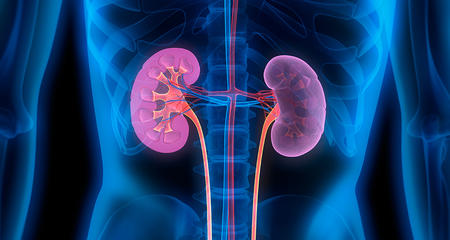Diabetes and thyroid disease are the two main endocrine issues women may face during pregnancy. Our endocrinologists are experts at diagnosing and treating hormonal problems before, during and after pregnancy to optimize the health of you and your baby. We provide high-level consultation for pregnant women with pre-pregnancy prediabetes, type 1 diabetes or type 2 diabetes, as well as gestational diabetes. Additionally, we provide expert care for other endocrine disorders such as pituitary tumors, thyroid disease or tumors or congenital adrenal hyperplasia.
Keeping blood glucose levels as close to normal before and during pregnancy is very important for the health of you and your baby. Poorly controlled diabetes affects fetal growth and development, which can occur very early in the pregnancy (before the seventh week of pregnancy). Research has shown when women with diabetes keep blood sugar levels under control before and during pregnancy and during delivery, the risk of birth defects and complications is about the same as for babies born to women without diabetes.
Our providers help create a treatment plan aimed at balancing blood sugars, nutrition, exercise, and hormone levels throughout your pregnancy to ensure the best possible outcome for you and your baby. Froedtert & MCW endocrinologists work closely with your perinatologist and OB/GYN to achieve the best possible health outcomes for the both you and your baby.
Gestational Diabetes (New Diabetes During Pregnancy)
Gestational diabetes may be diagnosed at any time during a pregnancy. During weeks 23 to 28 of pregnancy, a glucose tolerance test (GTT) is done to check for gestational diabetes. This is usually performed at a routine obstetric office visit or can be scheduled in the lab. The test measures your blood glucose levels after drinking a glucose-containing liquid. If the your blood glucose is abnormal, we may repeat the test over a longer duration or diagnose gestational diabetes and start treatment.
If we diagnose you with gestational diabetes, you meet with a diabetes education specialist who helps you learn about gestational diabetes and how to monitor your blood sugars. You will also meet with a dietitian for extensive counseling on medical nutritional therapy. Nutrition and diet play an important role in helping women with gestational diabetes manage their health. Proper diet and nutrition can help prevent and reduce complications for you and your baby. This includes an initial assessment of lifestyle and nutrition followed by counseling on controlling carbohydrate intake, physical activity, and managing other lifestyle factors. Follow-up visits help to monitor progress.
If you can't control your diabetes with diet and exercise, you will need medications to control the glucose levels. Some women can use oral medications alone, but frequently insulin injections are needed to maintain normal glucose levels. Achieving tight glucose control in pregnancy requires frequent blood glucose monitoring with finger-stick blood glucose testing or continuous glucose monitoring. Close monitoring along with regular visits to the clinic to evaluate recorded glucose levels enables your care team to make appropriate treatment plan changes and to provide you with reassurance and guidance to achieve the best health outcomes for you and your baby.
About four to six weeks after giving birth, you will have another GTT to make sure a your blood sugar levels have returned to normal or if you have a new diagnosis of diabetes (or undiagnosed prepregnancy diabetes) requiring ongoing treatment.
Women With Pre-Existing Diabetes (Before Pregnancy)
It is extremely important for women with diabetes to plan for pregnancy, with care beginning well before conception. All of our patients receive extensive pregnancy counseling, even if a woman may not be considering having children for many years. Counseling is provided by physicians, advance practice providers, nurses and dietitians who are certified diabetes educators and will all work closely with your OB/GYN.
We will screen you for possible complications of diabetes, such as retinopathy, nerve damage and kidney damage that can make your pregnancy higher risk. We encourage spouses and partners to attend all clinic visits as they play a vital role in supporting and encouraging you during pregnancy as well as understanding what you need to manage your diabetes. Most importantly, women are at risk for hypoglycemia (low blood sugars) during pregnancy, and their spouse/partner needs to be able to recognize signs of hypoglycemia (confusion, sweating, shakiness or heart racing) and know how to treat hypoglycemia.
There are predictable changes in insulin needs during pregnancy. Frequent monitoring of blood sugar levels is vital to a healthy pregnancy, recovery after delivery and when breastfeeding. Immediately after giving birth, your insulin needs dramatically decrease. Clinic staff teach you about reducing insulin doses during this time and monitor your diabetes control for several months after giving birth. There are also special considerations for breastfeeding, which requires an adjustment in the mother’s diet and possibly an adjustment in insulin doses.
Recognized as High Performing by U.S. News & World Report
Froedtert Hospital is recognized as high performing by U.S. News & World Report in three adult specialties and 16 procedures and conditions, including diabetes care.More to Explore





